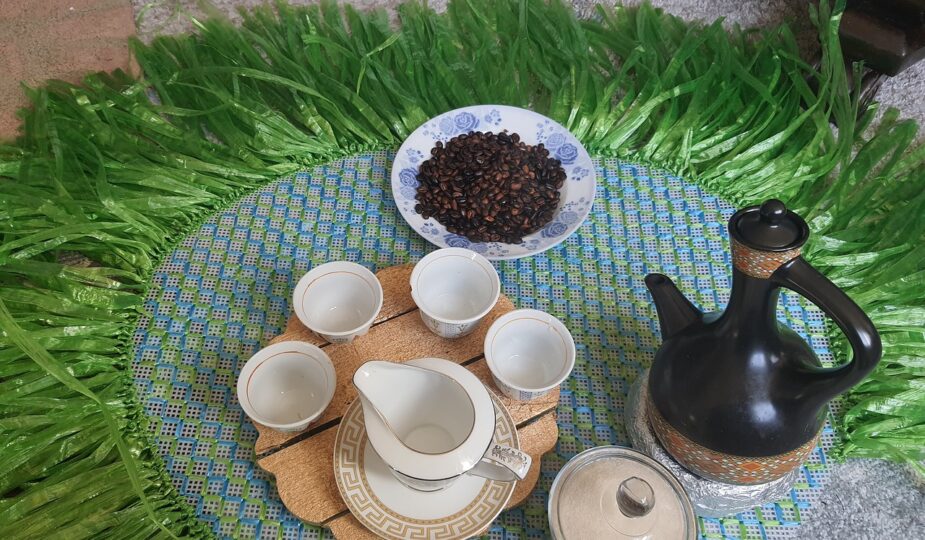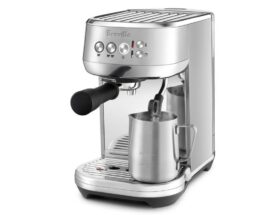
How to Ethiopian Coffee: Distinctive Quality and Flavor
Journey into the vibrant and captivating world of Ethiopian coffee, renowned for its unique and rich flavor profiles. Whether you’re a coffee enthusiast or a seasoned connoisseur, Ethiopia’s distinctive brews are sure to captivate your palate with each delightful sip.
Table of Contents
- A Peek Into Ethiopian Coffee’s History
- The Allure of Ethiopian Coffee
- Unique Characteristics of Ethiopian Coffee
- The History and Appeal of Ethiopian Coffee
- A Detailed Step-by-Step Guide on How to Make Authentic Ethiopian Coffee
- Frequently Asked Questions about Ethiopian Coffee1.
- 1. Why is Ethiopian Coffee considered unique?
- 2. What is the history behind Ethiopian Coffee?
- 3. How is Ethiopian Coffee traditionally prepared?
- 4. What are the different varieties of Ethiopian Coffee?
- 5. How does the Ethiopian Coffee taste compare with other regions’ coffee?
- 6. Where can one buy genuine Ethiopian Coffee?
- 7. Which brewing methods suit Ethiopian coffee best?
- 8. How does Ethiopian Coffee impact the local economy?
- 9. Can you describe the Ethiopian coffee culture?
- 10. What impact does Ethiopian coffee have on global coffee culture?
- The Lure and Love for Ethiopian Coffee
- Join The Coffee Conversation
A Peek Into Ethiopian Coffee’s History
Lovingly regarded as the homeland of coffee, Ethiopia’s coffee-centric history dates back as far as the 9th century. Indigenous to the lush green forests of Kaffa, a region in southwestern Ethiopia, the Coffea Arabica plant has woven itself into the tapestry of the country’s unique culture, captivating folklore, and vibrant traditions.
The Allure of Ethiopian Coffee
Ethiopian coffee holds a certain irresistible allure, largely due to the use of heirloom Arabica varieties. These variants boast a magical blend of flavors and nuances that transport you directly to the heart of Ethiopia with just one refreshing sip.
Unique Characteristics of Ethiopian Coffee
- Ethiopian coffee is often home-processed, adding to its distinctive quality and flavor.
- Ethiopian coffee exhibits a wide spectrum of flavor notes, from winey and fruity to floral and citrusy. There’s truly something for every palate.
- Ethiopia’s distinctive coffee rituals reflect the cultural significance of coffee within its rich tapestry of history and tradition.
Whether you’re favoring a pour-over, an espresso shot, or a traditional Ethiopian Buna (coffee ceremony), each cup of Ethiopian coffee immerses you in a symphony of assorted taste profiles, making every sip a journey of discovery.
The History and Appeal of Ethiopian Coffee
There’s a certain magic in understanding the trajectory of your morning cup of joe – from exotic lands, across oceans, and into your favorite mug. Today, we will journey to Ethiopia, the birthplace of coffee, and explore its vibrant history and enduring appeal.
A Glimpse into Ethiopian Coffee History
Legend has it that coffee was discovered by an Ethiopian goatherd named Kaldi back in the 9th century. After observing his goats becoming energized after eating berries from a specific tree, he reported his findings to the local monastery who went on to make a drink with the berries. They experienced a heightened sense of alertness and found it helped them through their evening prayers. Word spread, and so began the worldwide phenomenon of coffee drinking.
The Magnetism of Ethiopian Coffee
Today, the legacy left by Kaldi lives in the coffee ceremonies performed in Ethiopian households and cafes. It is a ritual that serves as a time of communal bonding, a reflection of Ethiopian hospitality. The picture is almost cinematic: the green coffee beans roasting in a pan, the aroma wafting through the air, the rhythmic grinding of the beans, and finally, the rich, full-bodied coffee served in small cups.
And of course, Ethiopian coffee carries a vivid flavor profile. From the fruity notes of Sidamo, the floral undertones of Yirgacheffe, to the wine-like essence of Harrar – each cup tells a story of its region, climate, and people.
Your Essential Coffee Making Equipment
To enhance the experience of enjoying an Ethiopian brew at home, it’s essential to have the right kind of equipment. Here’s our top-rated must-have coffee gear:
- The coffee grinder: A burr coffee grinder is necessary for a consistent grind size.
- The brewing method: Consider an Ethiopian Jebena, a Pour Over, or a French Press for the best taste.
- The coffee: Last but not least, source high quality, fresh beans from a reputable roaster. The grade, variety, and roast profile will affect the taste of your brew.
From its humble beginnings in the Ethiopian highlands to exotic lands globally, coffee continues to captivate the world with its tantalizing aroma and invigorating taste. Join us as we continue this adventure, discovering more about coffee’s rich tapestry and how to best experience its tantalizing draw.
A Detailed Step-by-Step Guide on How to Make Authentic Ethiopian Coffee
If you’re new to Ethiopian coffee and don’t know where to start, don’t fret. Here’s a detailed step-by-step guide to help you make your own cup of Ethiopian delight.
- Prepare your coffee equipment. This includes your jebena (a traditional Ethiopian pot used to brew coffee), a roasting pan, a small grinder, and a fine sieve.
- Source high-quality green coffee beans. Ethiopian Yirgacheffe beans are highly recommended due to their distinct flavor profile of floral and citrus notes.
- Begin the coffee bean roasting process. In Ethiopia, this is traditionally done over an open fire. The beans should be continually stirred and shaken until they pop and crack, signifying that they’re done.
- Grind your freshly roasted beans. In Ethiopia, this is commonly done using a mortar and pestle. The coffee should be ground until it’s very fine, resembling the consistency of flour.
- Add water to the jebena and place it over heat. Once the water is warm, add the ground coffee starting with a spoonful at a time until you reach your desired coffee-to-water ratio.
- Let the coffee brew. The brewing process should take about 10 minutes, after which the jebena is removed from the heat and allowed to sit for a couple of minutes to let the coffee grounds settle at the bottom of the pot.
- Pour your coffee into small cups and enjoy. Make sure to serve it hot and savor the flavors of authentic Ethiopian coffee.
Remember, making Ethiopian coffee is not just about brewing a cup. It’s about enjoying the process and embracing the tradition that comes along with it.
Frequently Asked Questions about Ethiopian Coffee1.
1. Why is Ethiopian Coffee considered unique?
Recognized for its exquisite flavors and intriguing history, Ethiopian coffee offers a special experience to the coffee enthusiast. Standing out for its distinct fruity and floral profiles, each cup promises an explosive flavor journey unlike any other.
2. What is the history behind Ethiopian Coffee?
The birthplace of coffee, Ethiopia, is famous for its rich folklore surrounding the discovery of the coffee bean. The tale of Kaldi the goat herder, who, upon noticing the invigorating effect of eating coffee cherries on his goats, shared this valuable knowledge, and inadvertently birthed our universal love for coffee.
3. How is Ethiopian Coffee traditionally prepared?
Ethiopian coffee is traditionally prepared in a ceremony that encompasses respect for the coffee beans and the community. It is a union of roasting, grinding and brewing, usually done on a small charcoal stove and served in ‘jebena’, a traditional clay coffee pot.
4. What are the different varieties of Ethiopian Coffee?
- Yirgacheffe – Known globally for its brilliant tangy acidity and intense, clean taste.
- Sidamo – Renowned for vibrant, lush body and deep spice undertones.
- Harrar – Revered for its spicy, fragrant, and wine-like quality.
5. How does the Ethiopian Coffee taste compare with other regions’ coffee?
Although coffee taste depends on several factors, Ethiopian coffee stands out for its wine-like characteristics and radiant fruit and floral tones. Compared to Latin American coffee, which exhibits more chocolate and nutty tones, Ethiopian coffee is wild and free with a sense of the unexpected.
6. Where can one buy genuine Ethiopian Coffee?
Authentic Ethiopian coffee can often be found in specialty coffee shops and online stores specializing in direct trade with coffee farmers. It’s important to look for signs of authenticity, such as the FairTrade certification, to ensure supportive trading partnerships.
7. Which brewing methods suit Ethiopian coffee best?
Given its unique, vibrant characteristics, Ethiopian coffee shines when prepared using methods that enhance its inherent qualities. The pour-over brewing process, specifically the Hario V60 and Chemex methods, tend to highlight its fruity and floral notes most effectively.
8. How does Ethiopian Coffee impact the local economy?
Ethiopian coffee plays a vital role in the local economy, with over 15 million Ethiopians relying on it for their livelihood. It represents approximately 34% of the country’s yearly export earnings, demonstrating its integral role in supporting Ethiopia’s growth and prosperity.
9. Can you describe the Ethiopian coffee culture?
The coffee culture in Ethiopia is deeply rooted in the country’s social and community fabric, with the traditional coffee ceremony being an expression of respect and hospitality. Often conducted by women, the ceremony involves the practice of washing, roasting, grinding and brewing the coffee in the presence of guests, serving as a time to discuss community matters and strengthen relationships.
10. What impact does Ethiopian coffee have on global coffee culture?
As the birthplace of coffee, Ethiopia’s coffee has considerably influenced global coffee culture. Its diverse variety of indigenous coffee types, each with unique flavor profiles, set the bar for specialty coffee across the globe. Moreover, the compelling narrative of its origin continues to intrigue coffee lovers worldwide, further cementing its place in coffee history.
The Lure and Love for Ethiopian Coffee
The enthralling journey of Ethiopian coffee begins in this historical origin and wefts through a myriad of transformations to reach your morning cups. Its rich aroma and captivating taste make it a beloved beverage worldwide. Here’s what makes Ethiopian coffee so special.
A Glimpse into the Past
Tracing its roots to the wild coffee forests of Ethiopia, it’s no surprise that coffee remains a staple part of Ethiopian culture- a testament to its deep historical connection, as well as an expression of Ethiopian hospitality.
Ethiopian Coffee Today
In the present day, Ethiopian coffee reigns supreme with its unique, vibrant flavors that delight the senses. Ranging from bold, heavy bods to sweet, floral notes, the diversity is truly astonishing.
The Art of Brewing Ethiopian Coffee
To fully appreciate a cup of Ethiopian coffee is to engage with its traditional coffee ceremony- a ritual exemplifying Ethiopian culture itself. This process involves roasting the beans in a pan, grinding them in a mortar and pestle, and brewing the resultant powder in a special pot called a Jebena.
Join The Coffee Conversation
The aromatic appeal of Ethiopian coffee permeates across borders and cultures, unifying coffee enthusiasts in their shared love for this remarkable beverage. We’re eager to hear about your own experiences with Ethiopian coffee. Feel free to share your thoughts, stories, and comments. Let’s keep this exciting caffeinated dialogue brewing!









